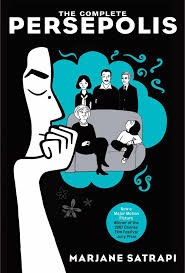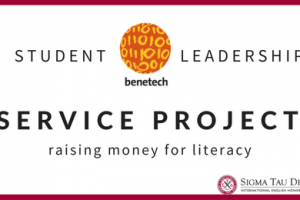As literature lovers, it is our instinctual response to regard Banned Books Week with a modicum of solemn reflection; a week when we think about the thousands of people unable to enrich their literary lives with profound works like Animal Farm, Lolita, and Harry Potter (my personal favorite). The loss of awareness is something all literary scholars dread and actively work to stave off. Emotionally, the idea of “banned books” hits upon a specific nerve found especially in those who deeply love the written word.
 While I recognize the need for pensive contemplation, I propose that English students, academics, and aficionados adopt a new emotional regard for the week. Instead of thinking about the losses and setbacks caused by banned or burned books, we should observe the celebration of shifts in human ideology and history. Many books are banned because they conflict with historically sensitive events. When we’re still learning how to deal with these ideological conflicts, the literature supporting controversial beliefs is often the first thing to be villainized.
While I recognize the need for pensive contemplation, I propose that English students, academics, and aficionados adopt a new emotional regard for the week. Instead of thinking about the losses and setbacks caused by banned or burned books, we should observe the celebration of shifts in human ideology and history. Many books are banned because they conflict with historically sensitive events. When we’re still learning how to deal with these ideological conflicts, the literature supporting controversial beliefs is often the first thing to be villainized.
 For example, Marjane Satrapi’s Persepolis, is a memoir detailing the author’s experiences growing up during the Iranian Revolution. The critically acclaimed text has received accolades for its honest and visceral depiction of such a politically charged and controversial historical moment. However, Persepolis is one of the most contested books of the past decade. Many reasons for banning the text stemmed from anti-Islam relations following a post 9/11 ideological shift. The lifted ban on Persepolis signaled the merit of Satrapi’s text and was indicative of the tensions between America and Iran at the time. In this case, and many others like it, literature and book-banning history reflected the tumultuous issues occurring in contemporary society.
For example, Marjane Satrapi’s Persepolis, is a memoir detailing the author’s experiences growing up during the Iranian Revolution. The critically acclaimed text has received accolades for its honest and visceral depiction of such a politically charged and controversial historical moment. However, Persepolis is one of the most contested books of the past decade. Many reasons for banning the text stemmed from anti-Islam relations following a post 9/11 ideological shift. The lifted ban on Persepolis signaled the merit of Satrapi’s text and was indicative of the tensions between America and Iran at the time. In this case, and many others like it, literature and book-banning history reflected the tumultuous issues occurring in contemporary society.
Instead of looking at Banned Books Week as a solemn affair, let’s regard it as a symbolic indicator of human progress and achievement. If that doesn’t seem sufficient enough reason to celebrate, Banned Books Week exemplifies the dynamic power of literature as a touchstone for humanity.
 So celebrate by reading a recently challenged book, or just read Harry Potter again as I am doing.
So celebrate by reading a recently challenged book, or just read Harry Potter again as I am doing.
Banned Books Week Social Media Contest
In celebration of Banned Books Week Sigma Tau Delta and National English Honor Society are teaming up to host a contest across our combined social media accounts. We want to hear about your favorite banned book! To participate you must tag us in a post about your favorite banned book on any of the following social media accounts:
- NEHS Facebook
- NEHS Twitter (@NEHSXpress)
- Sigma Tau Delta Facebook
- Sigma Tau Delta Twitter (@EnglishCon)
- Instagram (@EnglishMatters)
- or snap us at englishmatters on Snapchat
In need of some inspiration for your post? Here are a few ideas to get you started:
- Share a photo of your favorite banned book on Instagram
- Share your favorite quote from a banned book on Twitter
- Share your rationale against banning books, or banning a particular book, on Facebook
- Send us a Snap talking about your favorite Banned Book
The contest will run from Sunday, September 25-Saturday, October 1. Everyone who participates during this time frame will be entered in a drawing to win one of three $25 Amazon gift cards. A $45 Amazon gift card also will be awarded to the best overall post. You may post to multiple accounts to improve your odds of winning, but please tell us about a different book in each post!
 Haley Helgesen
Haley Helgesen
Student Representative, Midwestern Region, 2016-2017
Phi Delta Chapter
Western Illinois University, Macomb, IL





